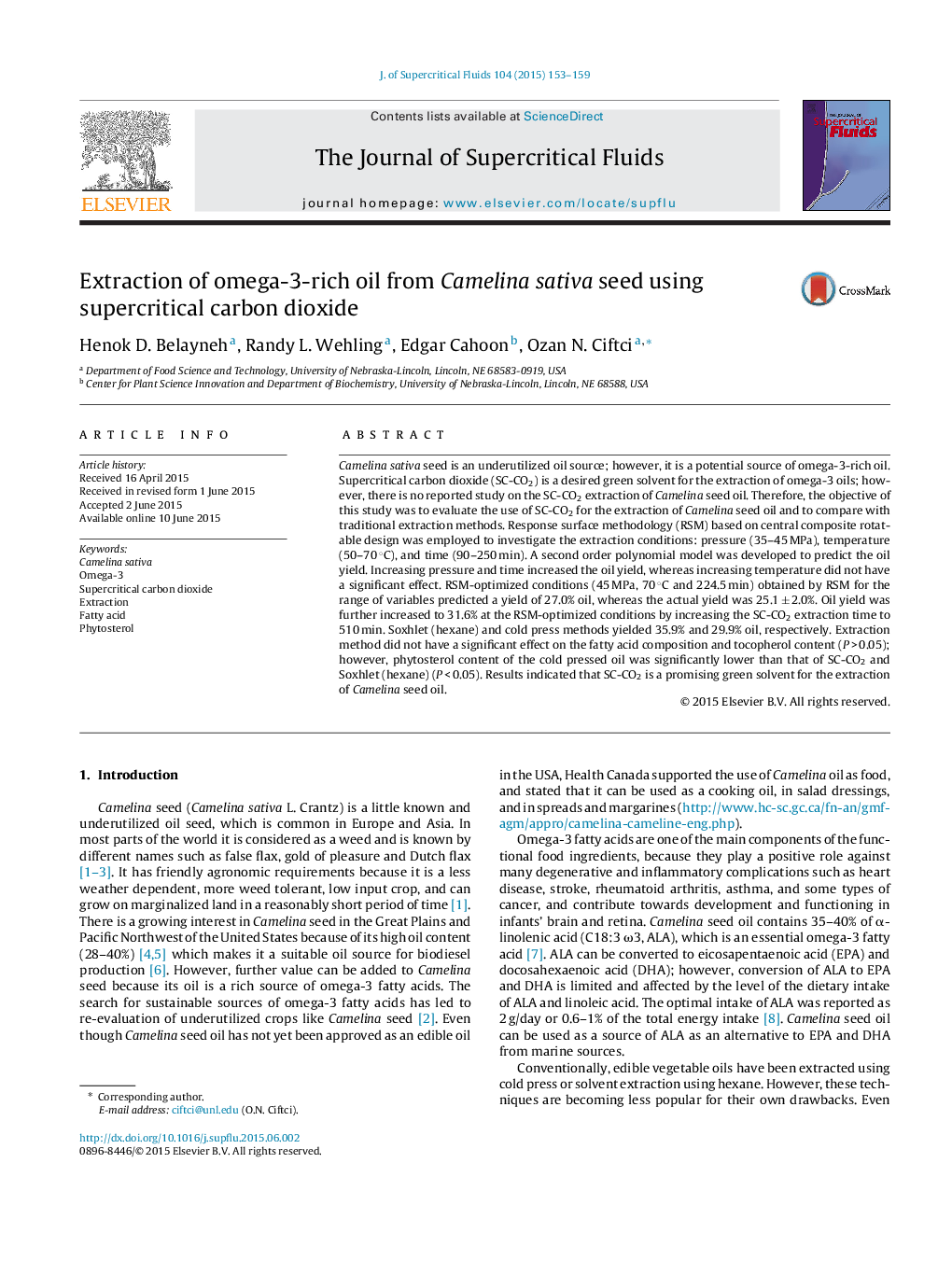| Article ID | Journal | Published Year | Pages | File Type |
|---|---|---|---|---|
| 230118 | The Journal of Supercritical Fluids | 2015 | 7 Pages |
•SC-CO2 extraction of Camelina seed oil was reported.•Oil yield of SC-CO2 extraction was higher than that of cold press.•Oil yield increased with pressure and time, but not temperature.•Camelina seed is a promising omega-3 oil source.
Camelina sativa seed is an underutilized oil source; however, it is a potential source of omega-3-rich oil. Supercritical carbon dioxide (SC-CO2) is a desired green solvent for the extraction of omega-3 oils; however, there is no reported study on the SC-CO2 extraction of Camelina seed oil. Therefore, the objective of this study was to evaluate the use of SC-CO2 for the extraction of Camelina seed oil and to compare with traditional extraction methods. Response surface methodology (RSM) based on central composite rotatable design was employed to investigate the extraction conditions: pressure (35–45 MPa), temperature (50–70 °C), and time (90–250 min). A second order polynomial model was developed to predict the oil yield. Increasing pressure and time increased the oil yield, whereas increasing temperature did not have a significant effect. RSM-optimized conditions (45 MPa, 70 °C and 224.5 min) obtained by RSM for the range of variables predicted a yield of 27.0% oil, whereas the actual yield was 25.1 ± 2.0%. Oil yield was further increased to 31.6% at the RSM-optimized conditions by increasing the SC-CO2 extraction time to 510 min. Soxhlet (hexane) and cold press methods yielded 35.9% and 29.9% oil, respectively. Extraction method did not have a significant effect on the fatty acid composition and tocopherol content (P > 0.05); however, phytosterol content of the cold pressed oil was significantly lower than that of SC-CO2 and Soxhlet (hexane) (P < 0.05). Results indicated that SC-CO2 is a promising green solvent for the extraction of Camelina seed oil.
Graphical abstractFigure optionsDownload full-size imageDownload as PowerPoint slide
